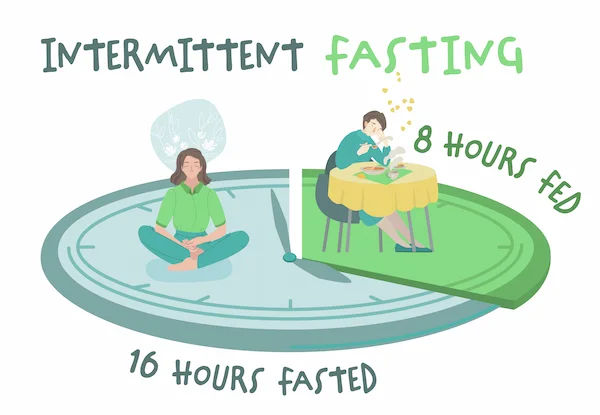Low-Fibre Intake Disorders: Risks, Effects, and Prevention
Learn about low-fibre intake disorders, their impact on digestive, metabolic, and cardiovascular health, and practical tips to boost fibre intake. Discover the importance of dietary fibre for overall well-being.

Written by
Last updated on 13th Jan, 2026
Dietary fibre does a great deal of good for the digestive, metabolic, and overall well-being of a human being. Dietary fibre is essentially a portion of plant material that consists of those forms of carbohydrates that are not digested and absorbed in the small intestine, so they are sent into the colon.
This then undergoes partial or total fermentation by the intestinal microflora. To a significant extent, this component, known as fibre, can be found in fruits, vegetables, whole grains, legumes, nuts and also seeds. The sorting of fibre is based on its solubility.
Fiber is required for preventing chronic diseases; however, many people do not take the required amount. Continue reading to know why fibre has an important role in digesting food, regulating blood sugar, lowering cholesterol, and making someone feel fuller.
Types of Dietary Fibres
There are two different groups of dietary fibres, which have their properties and advantages.
Soluble fibre dissolves in water and becomes gel-like; then, it slows down digestion absorption. It may help lower body sugar levels and lower LDL cholesterol. Sources include oats, barley, apples, citrus fruits, and legumes.
Insoluble fibre does not dissolve in water and simply helps in increasing the volume of the faeces, thus providing an opportunity for easy, daily bowel movement. It usually is found in whole grains, nuts, seeds, and vegetables like carrots and celery.
Low Fibre Effects on Digestive Health
One dangerous aspect of having low dietary fibre is the health of the digestive system which worsens, later leading to many issues.
It produces many side effects that could be unpleasant and possibly harmful. It adds to the primary causes of constipation.
A reduced fibre intake causes reduced stool bulk and water retention that makes stool harder to pass, resulting in difficulty in elimination.
Chronic constipation results in haemorrhoids and anal fissures, which can cause discomfort and further complications.
There is an appreciable increase in the probability of developing an acute episode of diverticulitis in people who consume insufficient amounts of dietary fibre, leading to inflammation or infection of the pouches in the colon wall.
Impact on Metabolic and Cardiovascular Health
The impact of lack of sufficient fibre does not end up affecting only digestion, but largely extends its influence on metabolic and cardiovascular health.
Normally, food with little fibre does not make the individual feel full faster. This results in increased calorie intake due to the lack of satiety resulting in overconsumption and eventually obesity.
High-fibre foods give a sensation of fullness to promote weight management.
Fibre acts on cardiovascular health by keeping cholesterol in proper cheque and improving lipid profiles.
Reduced amounts of it are also associated with conditions such as atherosclerotic changes, hypertension, or coronary events.
Other Conditions Related to Low Fibre Intake
Ingesting low fibre would also result in other possible chronic health disorders.
It slows the absorption of sugars and thus helps maintain blood glucose levels.
A lack of intake inhibition has been linked to a higher risk for insulin resistance and the development of type 2 diabetes. Soluble fibres have better effects on glycemic control.
Population at High Risk for Declining Fibre Intake
Prospective lifestyle changes, dietary preferences, and other factors can make a person suffer from insufficient fibre intake.
Several eating habits, particularly certain processed foods and not very high in fibre, contribute heavily to fibre starvation.
One thing that contributes is the fast pace of life, which usually leads a fast-food trend, ultimately worsening the issue
Recommended Fibre Intake
An adult is supposed to take about 25 to 30 grams of fibre every day, which can vary as per age, gender, and energy requirements.
Goals should be age-appropriate for children and adolescents' requirements based on their development.
A variety in diet with a high quantity of fruits, vegetables and legumes, whole grain nuts and food, or plant seeds could ensure sufficient delivery of fibres into the human body. Examples include berries, lentils, quinoa, almonds, and sweet potatoes.
Ways to Boost Fibre Intake in the Diet
Strategies to ensure enough intake of fibre include ways that are practical as well as sustainable.
One can add high-fibre foods to the meal plan daily. Individuals can replace refined grains with whole grains and add legumes into their soups and salads. They can also promote the consumption of fresh fruits and vegetables as healthy snacks.
Fibre supplements often come in handy. However, before adopting any measures, don't forget to seek medical scrutiny.
Monitoring and Managing Fibre Intake
The goal of fibre monitoring is to identify symptoms before a serious issue occurs because of a lack of fibre in one's diet.
Fibre decreases would manifest through different signs like constipation, bloating, or fluctuating blood sugar levels that may lead to more damaging consequences in health if left unattended.
Healthcare professionals can help restore an optimal diet through planned nutritional regimens, medical interventions, and very structured follow-ups.
Conclusion
Fibre intake is vital for maintenance of intestinal health. Low fibre intake makes the metabolism go astray or leads to numerous health consequences starting from slight uneasiness to severe chronic diseases.
A diet rich in fibre can make the digestive system run like a well-oiled engine, maintain weight, minimise chances of getting cardiovascular diseases, and prevent several types of malignancies. It further maintains a balanced gut microbiota, which is necessary for immune health.
The addition of dietary fibre should be an easy but big measure in creating a healthier lifestyle. Learning, proactive meal planning, and professional guidance can help one get the ideal fibre intake for optimal health and continued well-being over a lifetime.
Consult Top Dietician
Consult Top Dietician

Ms. Sreeparna Dey Dhara Deb
Dietician
10 Years • DNHE
Bansdroni
Siddhita Healthcare., Bansdroni

Ms. Sushma Jaiswal
Dietician
42 Years • M.Sc.(Food & Nutrition)
Bengaluru
Swasthya Nutrition, Bengaluru
Mrs Sneha P V
Nutritionist
10 Years • Master of science in Food and Nutrition
Bengaluru
Apollo Clinic, Sarjapur Road, Bengaluru

Ms Divya Gandhi
Dietician
10 Years • Diploma in Nutrition and Dietetics
Delhi
Diet and Cure, Delhi
(325+ Patients)

Ms. Samapti Maity
Dietician
16 Years • MSc. (Clinical Nutrition & Dietitics), NDEP, Course in Maternal Infant Young Child Nutrition.Diploma in Sports Nutrition, Diploma in Diabetic educator, FODMAP Specialist
Kolkata
BIENETRE CLINIC, Kolkata

